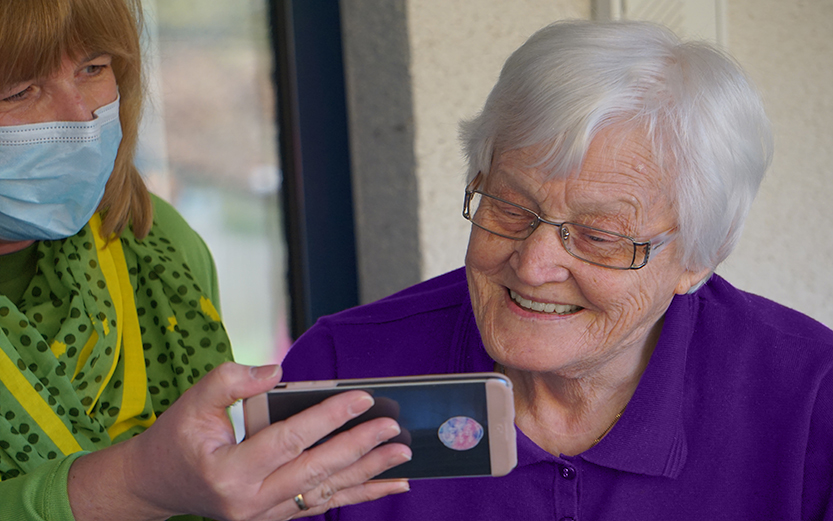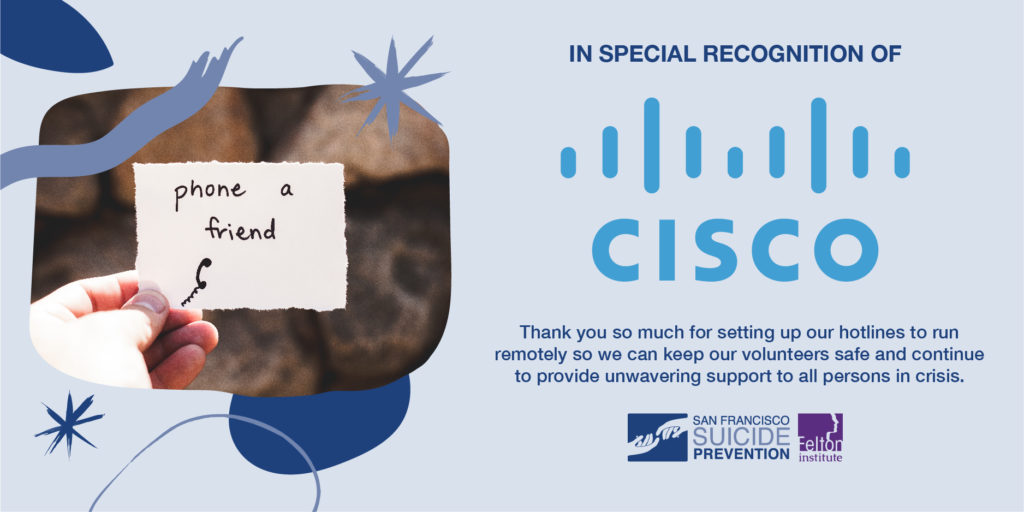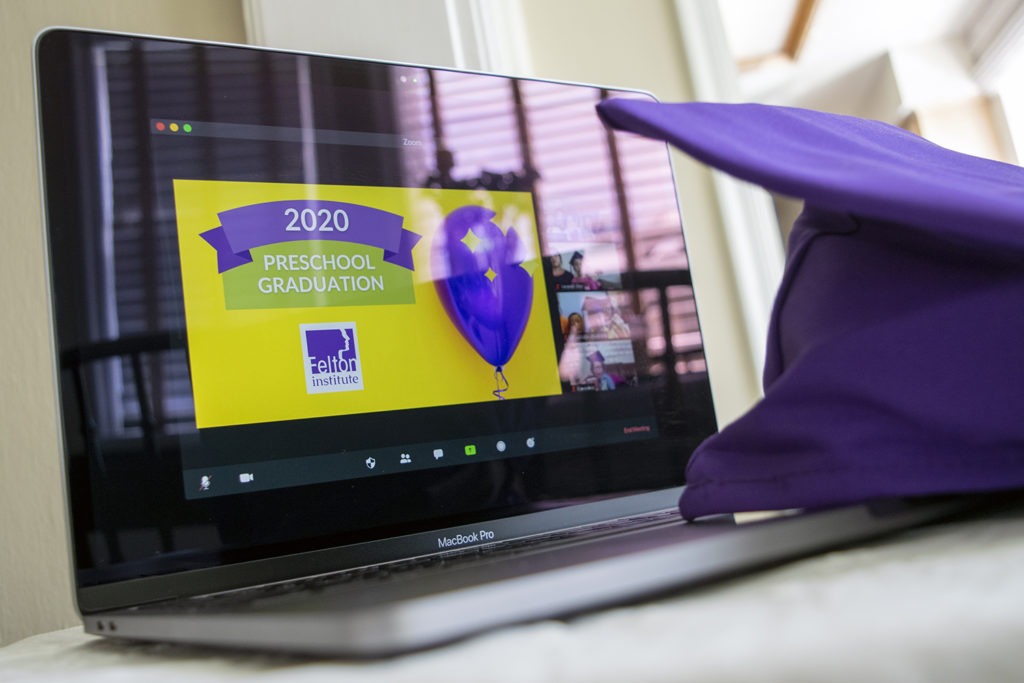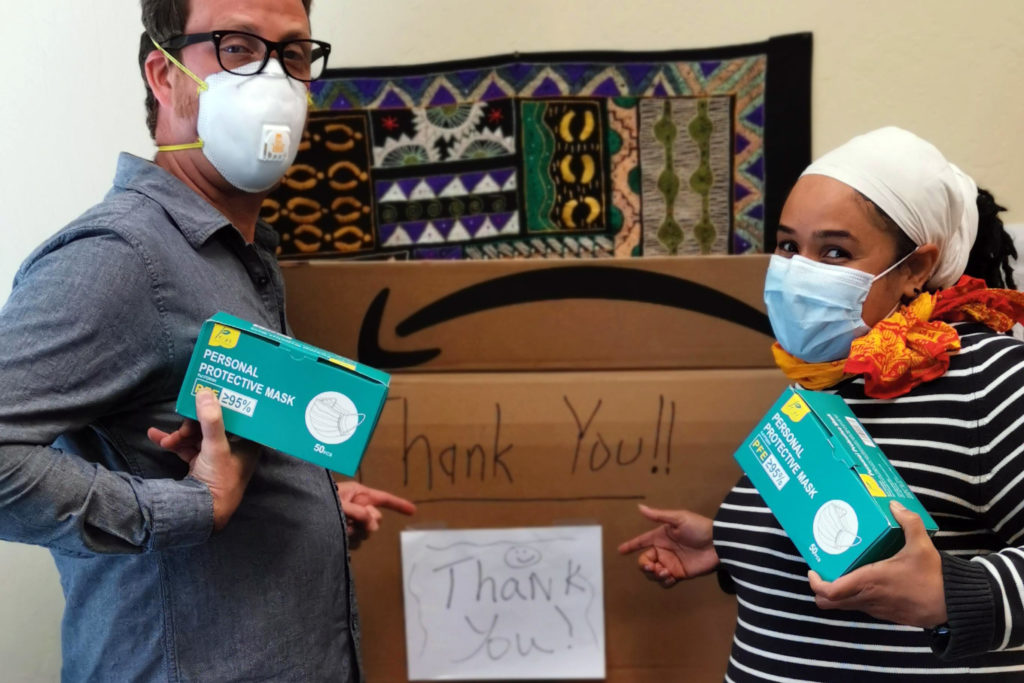2020 was a year defined by disruption.
COVID–19. Wildfires. Heatwave. Protests and social unrest with a turbulent political climate during a historical pandemic. Everyone, everywhere had to learn how to adapt. And do so quickly.

Across the globe, entire nations were on lockdown to fight the spread of the coronavirus. Consumers hoarded personal paper products; the business and education communities were forced into remote engagement environments as the medical and scientific community began combatting the enigmas presented by this deadly disease. In this environment, Felton Institute committed to the work of providing continuous essential services to the most vulnerable and underserved populations, families, and individuals more susceptible to the ravages of the virus across five San Francisco Bay Area counties.
Providing behavioral health care in this environment meant facing a myriad of challenges. To name a few: isolation of older citizens; food insecurity of families; increased anxiety and paranoia of those with long-term mental health problems; and other societal vulnerabilities that come with rising rates of unemployment, homelessness, and overburdened health services. In this “new normal” of living, Felton’s workforce earned its title as “essential workers”.
Embracing Technology and Partnership

The pandemic has fundamentally changed the delivery of social work, education, and mental health services. The State of California enacted new educational guidelines and Telehealth regulations as a mechanism to ensure continuity of essential services. Quickly, Felton Institute adopted its programs to continue to serve in this new way.
In March, Early Psychosis Emergency Operations worked diligently to ensure program participants would receive continuous intensive behavioral health support. Anticipating the surge of health care needs due to COVID–19, the goal was to prevent psychiatric crisis and reduce in-patient psychiatric hospitalizations and ER visits. Felton met this need by adapting mental health services to digital platforms throughout the agency, including the Deaf Community and Counseling Services (DCCS).
2020’s compounding of pandemic induced stresses created an overwhelming undercurrent of unease that pushed some to suicidal crisis. Felton’s San Francisco Suicide Prevention supported distressed callers, after implementing a cloud-based calling system, made possible with a partnership with Cisco Systems. Amazingly, the upgrade was completed in a mere four days, so volunteers and staff could stay mobilized and continue taking calls safely from home, in compliance with Shelter-in-Place orders.

Felton partnered with the Department of Children, Youth and their Families, the Office of Early Care and Education, and First Five San Francisco to launch the ECE Community Hub for children 5-13 years old. The free program is aimed at supporting elementary students who lack the necessary resources to support remote learning. With funding from the California Public Utilities Commission, the Senior Division started San Francisco’s first “Tech Squad” to connect older adults to online technology and provide essential training for those who have never been connected before. In June, Felton proudly applauded sixteen of its Hilltop High School seniors graduating from its Teenage Pregnancy and Parenting Program . The virtual graduation ceremony allowed friends and family to celebrate with the graduates online.

Felton quickly adapted its programs that required face-to-face contact, with the health of clients and staff top-of-mind. To address concerns of social distancing, health, and safety, community support was crucial to keeping these operations running.
In April 2020, when the pandemic was still in its infancy, the three-ply surgical masks were in short supply and very necessary for members of Felton’s Senior Division to maintain programs and services at its San Francisco and Alameda offices. Felton received over 400 masks from Operation Mask Lift, which was created to provide N95 masks and personal protective equipment (PPE) to essential workers.

In partnership with the San Francisco Food Bank, Felton’s Family Support Program increased food supply to double the amounts in the regular weekly diaper and food bank, which provides fresh fruit, vegetables, and additional items to families on-site. Maintaining social distance protocols, families received the pre-packed items to alleviate the hardships brought about by COVID-19. Felton also provided “literacy bags” for children enrolled in early care and education programs.
Planning even began for expanding two additional Community Hubs for pregnant and parenting teens who need support with distance learning. Despite the challenges of the year, construction for a new ECE site location is underway in the Mission District.
Supporting Resilience and Social Justice Programs
In 2020, the Justice Division programs grew by 50% in San Francisco and Alameda Counties, due to the urgency to support the needs of individuals leaving incarceration and returning to our communities. Interests in reducing the spread of the virus in overcrowded communal environments hastened releases.
Felon’s Center for Reentry Excellence (CORE) was developed to assist those seeking support finding their way back to community and family. It is a powerful accompaniment to Felton’s other justice programs: Young Adult Court (YAC) and Supporting Treatment and Reducing Recidivism (STARR). These programs are designed to divert individuals from incarceration, prevent recidivism, and support families and incarcerated men and women transitioning from jails and prisons.
Extending services to the unhoused as part of Felton’s social justice commitment was intensified in the summer months of 2020 during California wildfire season. For those without shelter, the smokey skies and harmful air quality were especially concerning for those forced to live outdoors. The insecurely housed and homeless populations were left incredibly vulnerable. With skilled service and determination, the front liners from the Felton Engagement Specialist Team (FEST) bravely faced the smokey environment and possible exposure to COVID19 going into encampments to do pre-resolution assessments, making certain tents were six feet apart, and educating inhabitants about COVID19.
In September of last year, the Department of Public Health and Felton launched the Felton Street Case Management Team, addressing low threshold case management for unhoused populations. Our social workers attended to 25 site locations, including Shelter-in-Place or Zip Hotels. They worked with tenants handling underlying medical health conditions, connecting them to their appointments, procuring documentation, and getting referrals for eligible services.
Looking to 2021
For the past 131 years, Felton Institute has transformed our models of care when circumstances dictate change. 2020 became the year for us to learn and adapt to approach work differently. Accordingly, we identified the problems, found solutions, and discovered more opportunities for growth.
It will be no different in 2021. Felton will continue navigating new territory. We are resilient and prepared for the newly emerging needs. Together, empowered by community partners, funders, and supporters, we can dig deep into resources and emerge with renewed strengths.
About Felton Institute: Founded in 1889, Felton Institute responds to human needs by providing cutting edge, evidence-based mental health and social services that transform lives. Felton Institute is a tax-exempt organization registered 501(c)(3) nonprofit under EIN 94-1156530.
Offering more than 50 acclaimed and honored programs that address homelessness, mental health, prenatal, adolescent, adult and senior needs, Felton Institute provides services in San Francisco, Alameda, San Mateo, Marin, and Monterey counties.
Felton is named for its social services pioneer and executive director Dr. Katharine “Kitty” Felton who was called the ”conscience of San Francisco” and was committed to ensuring that children and families in crisis have access to social services and resources in order to help them build upon their inherent strengths and develop self-sufficiency. www.felton.org